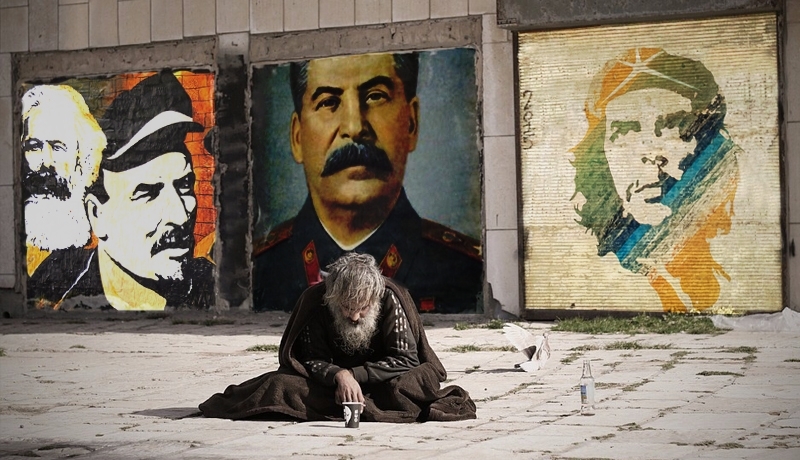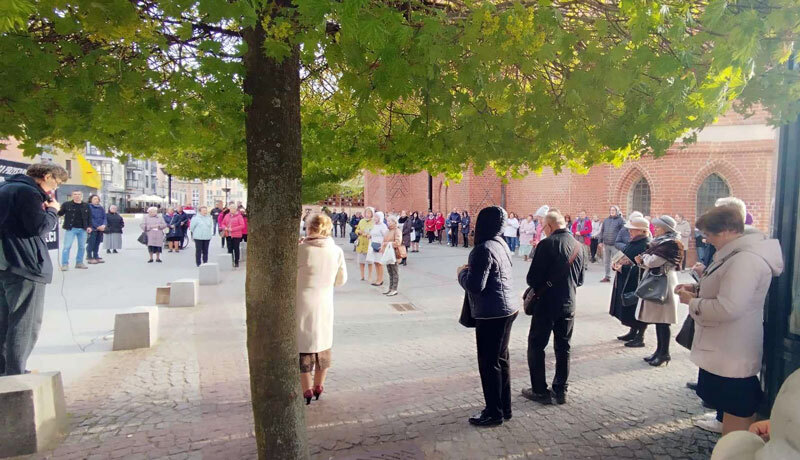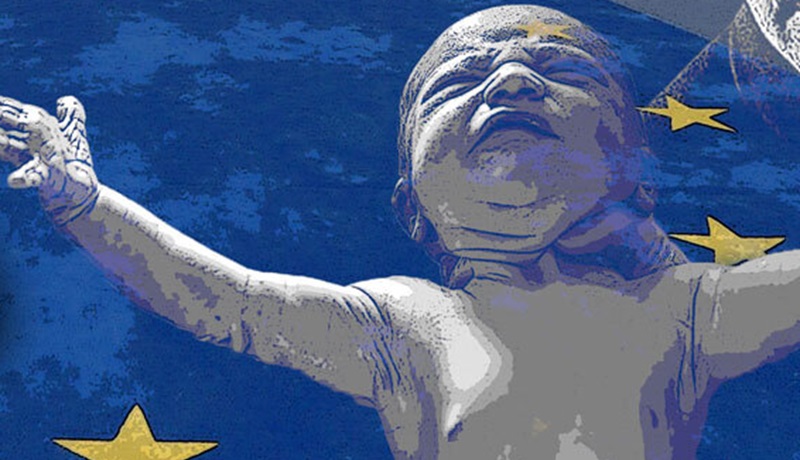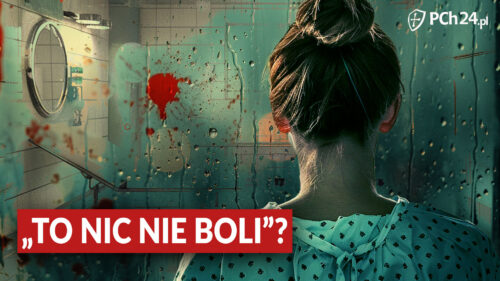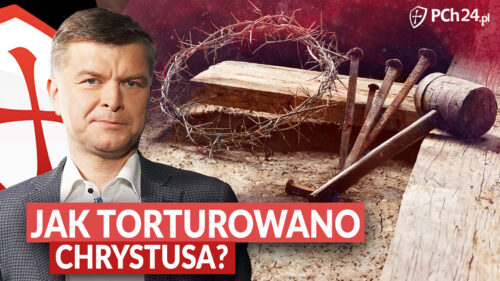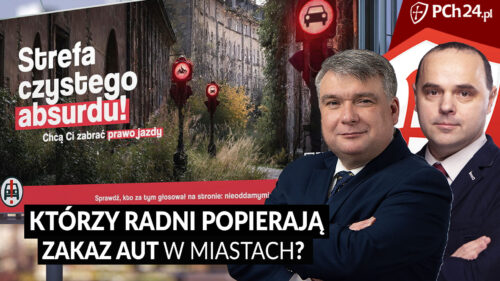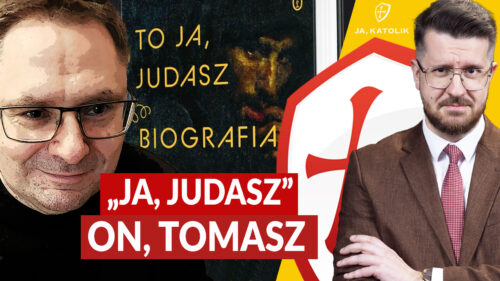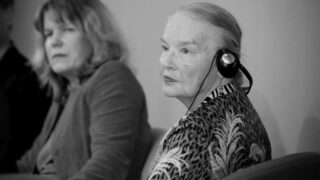“Anyone unwilling to work should not eat” (2 Thess 3:10) – St. Paul wrote in the Second Letter to Thessalonians. Is the teaching of the Apostle to the Gentiles still important for Catholics? Many statements of the modern Church people indicate that there are attempts to replace the saint of Tarsus with a philosopher of Trier – Carl Marx.
Poverty can be divided according to various criteria. One of them is to distinguish the poverty chosen by someone voluntary and the one which is unwanted. Hermits for example have been poor by choice. Appropriate vows are taken by religious. Not all people however desire to be paupers. And there is nothing wrong in it. It is all natural – and what’s more important – it is moral – to want to improve one’s economic status, to come out of poverty, to gain one’s own property, the lack of which oftentimes causes suffering. “For, every man has by nature the right to possess property as his own” – as Leo XIII pointed out in his encyclical Rerum Novarum.
Wesprzyj nas już teraz!
People can improve their standard of living either by consistent work, or by inflowing of goods from without (seldom: thanks to winning the lottery, more often through social benefits). The Church has so far promoted an active form of overcoming poverty. However that has recently somehow been changed.
Marx’s Theology
Heresies, rejecting the morally positive aspect of the material sphere of human life and of all the world, appeared in ancient and medieval times. Suffice it to mention dualistic Manichaeism which propagated an idea of an equal struggle between God and Satan, and of good, Divine spirituality and evil, “devilish” corporality. In the history of Christianity from time to time there have been trends, present also in the ancient Church, which totally rejected any care for earthly life. Such an attitude of Christians of Thessalonica, who resigned from work waiting for the second coming of Christ, made St. Paul write: “Anyone unwilling to work should not eat.”
In the twentieth century another heresy was born: a dangerous attempt of synthesizing Catholic theology and social thought with Marxism, which is a philosophical system totally contradictory to the Faith. Liberation theology, enjoying great success in South America, trying to present the Son of God and Savior as a communist revolutionary, Christ with a rifle on his shoulder (as Ryszard Kapuściński titled one of his travelogues) was condemned by the Church. However this tendency to infect Catholicism with some Marxist ideas has not declined.
“Holy” benefit or “holy” work?
There are plenty of people in the Church, also among the hierarchy, expressing positive opinions about the ideas usually associated with leftist movements. The Church’s concern for the poor has in some way become identical with the “concern” of this world. This way it’s easier – also in Poland – to meet a priest who is in favor of helping through social benefits than one who says that people become wealthy thanks to work and social and political systems are not meant to finance the poor by taking money from the rich but to create such conditions in which every hard-working man can live with dignity thanks to their work. Whereas this work, contrary to the modern leftist propaganda, is not only an absolute necessity, but it is inseparably associated with hardship – these are the consequences of the first people’s sin, the original sin. “And to the man he [God] said, Because you have listened to the voice of your wife, and have eaten of the tree about which I commanded you, 'You shall not eat of it’, cursed is the ground because of you; in toil you shall eat of it all the days of your life, thorns and thistles it shall bring forth for you; and you shall eat the plants of the field. By the seat of your face you shall eat bread until you return to the ground, for out of it you were taken; you are dust, and you shall return.” (Gen 3:17-19) – we can read in the first book of the Old Testament.
Work and hardship associated with it are a peculiar punishment but also a way to salvation. For the Creator designed His creation in such way that doing things which are difficult, sometimes unpleasant, but also unavoidable, we can get closer to the eternal life. It is no accident that that the motto of the Benedictines – a particularly important order in the history of Catholic Europe – is: Ora et labora (“Pray and work”)
The sin of free distribution
The way of coming out of poverty – as any other task any Catholic faces – must be moral. But thoughtless free distribution has nothing to do with morality. This method is unethical on many levels.
Receiving “free money” to live only because someone doesn’t have it is corruptive. Man quickly gets used to sweet idleness and living off the others. There is a danger that such a person will never go back to work again. Yet at a recent conference organized by the International Federation of Catholic Universities Pope Francis called for changing the approach to immigrants. The changes proposed by the Holy Father included providing strangers not only with access to the judiciary (which is problematic due to political correctness making honest verdicts in case of migrant criminals difficult), but also to… the pension system, healthcare and the subsistence level that are sufficient to live in a particular country. In a word: people in Europe have always had to work hard to achieve all these things.
Free distribution is corrupting – a thing well known to the Church people. In an interview published on our website in 2015 the president of the Pallottine missionary foundation “Salvatti.pl” Father Jerzy Limanówka pointed out some negative long-term results of providing material support for Africa.
– It’s the highest time to start cooperating with Africa. For we may send money, but we might as well buy goods they produce… Our attitude to Africa is best described by a saying, also known among missionaries, which is also the outlook of so called development policy which is by no means development one. This saying says, that a hungry man shouldn’t be given a fish but a fishing rod. If he has a fishing rod he can catch fish himself and support himself. But we want to make a step further – now it is time for us to buy that fish from that African. And as for the fishing rod he will make it himself. If we could establish normal economic relations with Africa, I think the problem of refugees would also be solved. For at the moment African economies are insufficient – the priest, who knows the situation in the Dark Continent, commented. Today there are attempts to repeat this wrong aid policy in Europe. The effect will be the same. Also in our place both Europeans and immigrants might be discouraged from work by receiving support from those who are wealthier.
Giving away money as part of social benefits is immoral also because of the other reason – these funds must be taken away from someone first. The teaching of the Church does not question the need of taxes but when the public levy becomes a sort of penalty for someone’s hard-work and resulting wealth then there is a danger that the cardinal virtue of justice will not be retained. Yes, it’s true – a Catholic has a duty to share his goods with the needy. But it does not mean that someone wealthier should be ruined by being plundered and that someone else should be rewarded for his idleness with this money. Nevertheless today we can frequently meet with a proposal, also within clerical circles, to turn a state into the legendary Robin Hood, who was supposed to take (i.e. steal) from the rich and give to the poor.
The Church of the poor?
The proposal to create a „Church of the poor”, a Church deprived of property which should be given away to the poor some time ago we could only hear from the leftist circles pretending to be Catholic but actually being anticlerical. Today the same voice we can hear from the considerable part of the Church.
There is no doubt that no believer, including priests and hierarchs, can collect goods here on earth “for where your treasure is, there your heart will also be” (Mt 6:21). “Blessed are the poor in spirit, for theirs is the kingdom of heaven” – Our Lord said in His Sermon on the Mount (Mt 5:3). However that poverty in spirit does not exclude property. For it means showing no attachment to the riches of this world and storing up treasures for ourselves in Heaven, not on earth, “where moth and rust consume and where thieves break in and steal” (Mt 6:19).
The proposal of stripping the Church off its grandeur, which only in a very small degree can reflect the splendor of the Glory of the Triune God, and using the money gained this way to give it to the poor was already condemned in the Gospel by St. John by the Son of God Himself.
“Six day before the Passover Jesus came to Bethany, the home of Lazarus, whom he had raised from the dead. There they gave a dinner for him. Martha served, and Lazarus was one of those at the table with him. Mary took a pound of costly perfume made of pure nard, anointed Jesus’ feet, and wiped them with her hair. Thee house was filled with the fragrance of the perfume. But Judas Iscariot, one of his disciples (the one who was about to betray him), said, Why was this perfume not sold for three hundred denarii and the money given to the poor? (He said this not because he cared about the poor, but because he was a thief; he kept the common purse and used to steal what was put into it.) Jesus said, Leave her alone. She bought it so that she might keep it for the day of my burial. You always have the poor with you, but you do not always have me. When the great crowd of the Jews learned that he was there, they came not only because of Jesus but also to see Lazarus, whom he had raised form the dead. So the chief priests planned to put Lazarus to death as well, since it was on account of him that many of the Jews were deserting and were believing in Jesus.” (J 12:1-11) – as we read in the Gospel.
Thus it is legitimate for the Church to have her possessions, precious goods, pieces of art, ornamented altars and huge temples erected for the greater glory of God. The Church has always used great works of art to explain God’s revealed Truth to the illiterate people. Also today art can touch people’s hearts much better than many theological treatises. The idea of “a poor Church” not only has no support in the Scripture, but also its realization could be harmful to the cause of evangelization.
The enriching Church
Considering the potential consequences of putting the revolutionary proposal of „a poor Church” into effect we must come to appalling conclusions. In Jesus’ times as well as at the moment when the Marxist ideology was born there was no lack of the poor in need of help. So is today. What would have happened if the Church in the nineteenth century had decided to give away all her possessions to the poor? Even if all the dioceses had had such riches as obsessed anticlericals describe, the number of the poor was – as still is – so big that they could have received next to nothing from those resources, the amount that could have improved their life for a short time at best.
A strictly Catholic solution however, an example of sensus catholicus, are Church schools well-known in the middle ages and modern Europe which means both education sensu stricto, and understood in a wider sense. No one else but Catholic orders taught European nations how to work the land sufficiently, helping in their economic development and limiting poverty. In many countries this mission of the orders was put to an end with destroying them by the protestant revolt.
Anybody can be a saint…
Although the will to come out of poverty is morally good, it is necessary to bear in mind that fighting poverty and overcoming it is not the most important target either for the Church, or for Catholics. The target has always been and will be the salvation. We should care for eternal life regardless of our wealth, and both a poor person and a billionaire might become a saint. “I know what it is to have little, and I know what it is to have plenty. In any and all circumstances I have learned the secret of being well-fed and of going hungry. I can do all things through him who strengthens me” (Phil 4:12-13) – St. Paul wrote in his Letter to the Philippians.
Michał Wałach
Translation: jjf

